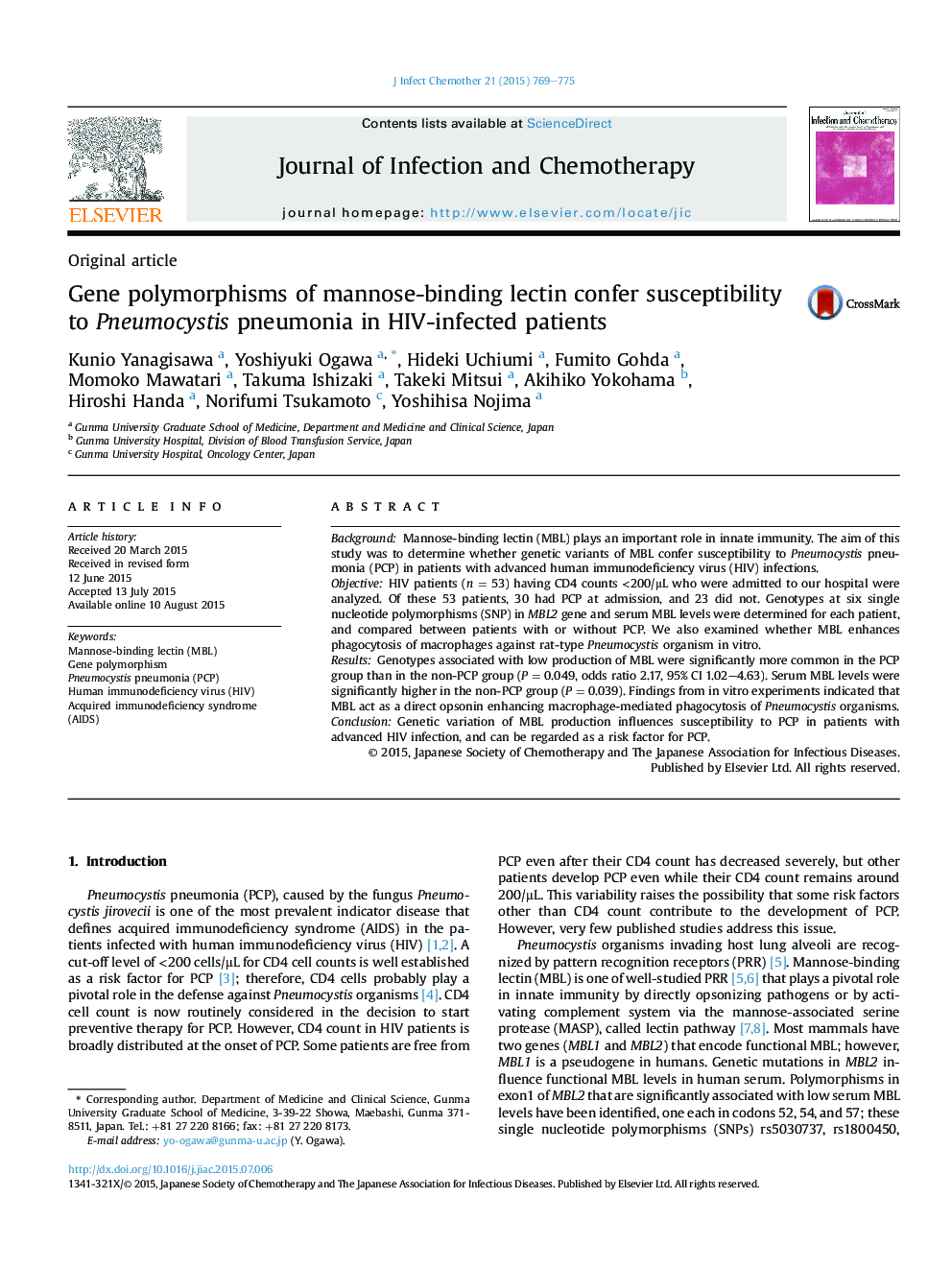| Article ID | Journal | Published Year | Pages | File Type |
|---|---|---|---|---|
| 3376760 | Journal of Infection and Chemotherapy | 2015 | 7 Pages |
BackgroundMannose-binding lectin (MBL) plays an important role in innate immunity. The aim of this study was to determine whether genetic variants of MBL confer susceptibility to Pneumocystis pneumonia (PCP) in patients with advanced human immunodeficiency virus (HIV) infections.ObjectiveHIV patients (n = 53) having CD4 counts <200/μL who were admitted to our hospital were analyzed. Of these 53 patients, 30 had PCP at admission, and 23 did not. Genotypes at six single nucleotide polymorphisms (SNP) in MBL2 gene and serum MBL levels were determined for each patient, and compared between patients with or without PCP. We also examined whether MBL enhances phagocytosis of macrophages against rat-type Pneumocystis organism in vitro.ResultsGenotypes associated with low production of MBL were significantly more common in the PCP group than in the non-PCP group (P = 0.049, odds ratio 2.17, 95% CI 1.02–4.63). Serum MBL levels were significantly higher in the non-PCP group (P = 0.039). Findings from in vitro experiments indicated that MBL act as a direct opsonin enhancing macrophage-mediated phagocytosis of Pneumocystis organisms.ConclusionGenetic variation of MBL production influences susceptibility to PCP in patients with advanced HIV infection, and can be regarded as a risk factor for PCP.
